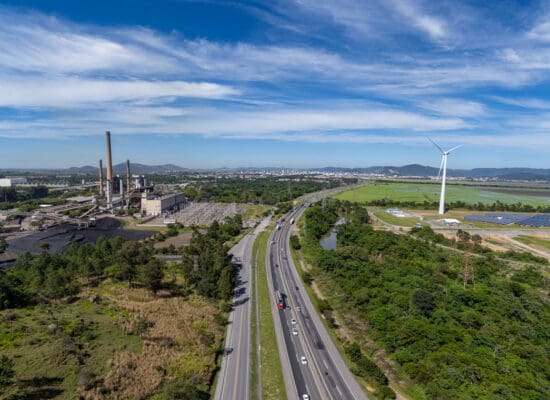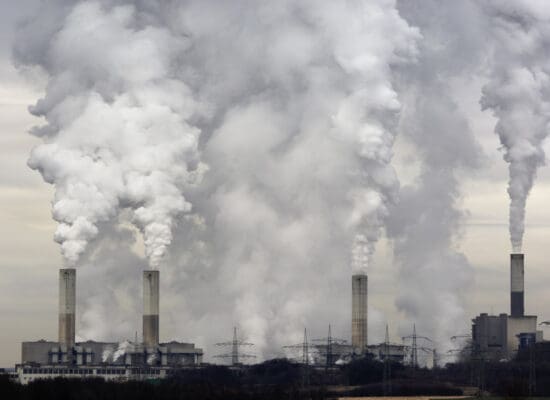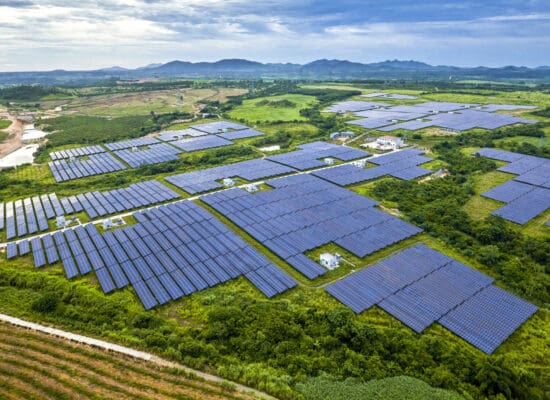Latest just energy transition news
Bosnia secures EUR 80 million World Bank loan to finance coal phase-out and energy transition
The World Bank has approved a EUR 79.9 million loan and a EUR 2.89 million grant for Bosnia and Herzegovina to support a just transition away from coal. The funding is targeting coal regions like Banovići, Zenica, and Kreka, and will help with the cost of repurposing post-mining land and closing underground mines. It will also fund renewable energy systems and support social protection and skills development, helping coal-dependent communities shift to sustainable livelihoods as part of Bosnia’s National Energy and Climate Plan.
South Africa: Eskom finalising plans for old coal-fired power stations to run on gas, nuclear
Eskom’s evolving Just Energy Transition strategy may see South Africa’s ageing coal plants, such as Camden, Grootvlei, and Kriel, being repurposed to run on gas, nuclear, or “clean coal” instead of being shut down. In Parliament, officials confirmed that final decisions will be made within six months, with small modular reactors under serious consideration. Civil society warns this shift could prolong pollution and delay renewables, especially given that these plants are exempt from meeting certain air pollution standards until decommissioning plans due in May are finalised and consulted on.
Stakeholders explore Nigeria's just transition guideline for a sustainable economy
Nigeria’s National Council on Climate Change held a stakeholder workshop to develop a national just transition guideline, with support from the International Labour Organization, the United Nations Industrial Development Organization, and the United Nations Development Programme. The guideline aims to align climate action with economic inclusion, green jobs creation, and protection for fossil fuel–dependent communities. Emphasising broad participation, the initiative seeks to ensure that Nigeria’s shift to a low-carbon future is people-centred, socially equitable, and anchored in national development priorities.
Colombia redefines role of energy communities and enables new business models with collective self-generation [Spanish]
Colombia’s Energy and Gas Regulatory Commission has updated regulations to expand the role of energy communities by enabling collective self-generation. The new framework allows multiple users—such as households, businesses, and institutions—to jointly invest in and operate shared renewable energy systems, including feeding surplus electricity into the grid. These changes are designed to reduce energy costs, strengthen local energy autonomy, and facilitate new business models that support Colombia’s shift toward cleaner, community-driven electricity systems.
Greenpeace activists stage protest at Poland's Turow lignite mine
Greenpeace activists protesting at Poland’s Turów lignite mine have urged the country’s government to commit to a timeline for closing the mine and to create a just transition plan. The mine, near the Czech border, was at the centre of a 2021 environmental dispute that was resolved when Poland provided compensation of EUR 45 million to the Czech Republic. Activists stress that without a clear transition plan, coal-dependent communities will be left behind as cheaper renewables replace coal.
Mitsubishi joins Singapore firms in climate plan to close Philippine coal plant early
Japanese conglomerate Mitsubishi Corporation has joined Singaporean firms Keppel and GenZero in a climate initiative to retire a 246 MW coal plant in Batangas, Philippines, by 2030—10 years ahead of schedule. The project aims to replace the plant with renewable energy and battery storage, potentially reducing carbon emissions by 19 million tonnes. Funding will be supported by transition credits backed by the Monetary Authority of Singapore, offering a model for accelerating coal phase-outs across Asia.
Colombian government advances proposal for round table with coal sector employees [Spanish]
The Colombian government is taking forward a proposal to establish a dialogue table with coal sector workers to uphold their labour rights and address their concerns about the energy transition. Minister of Labour Antonio Sanguino and Minister of Mines Edwin Palma emphasised the importance of including environmental, territorial, and gender justice in the discussions. While workers have shown willingness to participate, the absence of employer representatives has been noted as a challenge in achieving comprehensive agreements.
UK Energy Transition Skills Hub receives funding boost
The Energy Transition Skills Hub in Aberdeen has received a GBP 400,000 boost from the Engineering Construction Industry Training Board to support workforce training in renewables, hydrogen, and carbon capture. The hub will offer flexible courses—including at evenings and weekends—to reach diverse learners, such as adult returners. It will also feature a community space and cover subjects such as welding, wind, engineering, and electrical, supporting Scotland’s just transition and net-zero goals.
South Africa finally has a masterplan for renewable energy industry: Here's what it says
South Africa’s new Renewable Energy Masterplan charts a just transition from coal by promoting local manufacturing, with a focus on creating up to 29,000 jobs and ZAR 600 billion in investment by 2030. Developed through an inclusive process that involved government, business, and labour groups, it prioritises support for Black-owned firms, small enterprises, and workers in affected coal regions. The plan includes targeted skills development to ensure broader participation in the growing green economy.
Vietnam launches new Just Energy Transition Partnership information portal [Vietnamese]
Vietnam has launched a Just Energy Transition Partnership information portal, developed by the Ministry of Industry and Trade with support from international partners and the United Nations Development Programme. The portal aims to enhance transparency and promote stakeholder engagement in Vietnam’s shift to a low-carbon economy. It provides updates on strategies, action plans, progress reports, and opportunities for collaboration, supporting the country’s efforts to implement its Resource Mobilisation Plan and achieve net-zero emissions by 2050.
Indonesia awaits Asian Development Bank funds for Cirebon-1 power plant shutdown [Indonesian]
Indonesia’s Investment Minister Bahlil Lahadalia has signed a regulation to enable the early retirement of the 660 MW Cirebon-1 coal plant by 2035. The government plans to replace it with renewable energy projects, but funding from the Asian Development Bank’s Energy Transition Mechanism is still being negotiated. Technical and legal preparations are underway, with the early closure forming part of Indonesia’s broader efforts to shift from coal to cleaner energy sources.
Colorado asks Public Utilities Commission to reject Xcel's just transition plan
Colorado officials and residents are urging the Public Utilities Commission to reject Xcel Energy’s just transition plan, which proposes replacing coal plants with natural gas and exploring nuclear and hydrogen options. Critics argue that the plan undermines the state’s clean energy goals and burdens communities already affected by pollution. They advocate for prioritising wind and solar energy instead. A final decision is expected in August 2025.
Chilean minister presents draft National Just Socio-ecological Transition Strategy to expert panel [Spanish]
Chile’s Environment Minister, Maisa Rojas, has shared the final draft of the National Just Socioecological Transition Strategy with experts for approval. The 10-year plan promotes decent work, restoring ecosystems, gender equality, and support for coal-affected communities. Developed with input from over 30 organisations, it has been approved by the Interministerial Committee and now awaits final approval from the Council of Ministers for Sustainability and Climate Change before being submitted to President Gabriel Boric for implementation.
Philanthropy Asia Alliance tackles the region's health challenges and just energy transition
The Philanthropy Asia Alliance has launched a Just Energy Transition (JET) Community of Action to accelerate Asia’s shift to clean, inclusive energy. Despite accounting for over 50% of global energy consumption, the region receives a disproportionately low level of philanthropic support. The JET Community aims to close this gap by providing a platform for philanthropic collaboration on clean energy initiatives. Jointly led by members, which include the Tara Climate Foundation and Bloomberg Philanthropies, it seeks to turn intent into action through bold, collective leadership.
Protesters set up camp at fast-tracked coal mine in New Zealand
Around 70 protesters have set up camp at the Escarpment Mine on New Zealand’s Denniston Plateau to oppose Bathurst Resources’ fast-tracked plan to extract 20 million tonnes of coal over 25 years. Led by 350 Aotearoa and Climate Action Aotearoa, the action challenges the government’s Fast-track Approvals Act, citing climate and environmental concerns. Activists argue that the project’s emissions could equal New Zealand’s annual total, undermining efforts to ensure a sustainable and just transition.
Unions in Latin America's energy sector work towards gender-sensitive just transition [press release, Spanish]
Women trade unionists from five Latin American countries met at a seminar in Colombia to advance a gender-sensitive just transition in the energy sector. Organised by IndustriALL Global Union, the seminar focused on integrating gender equality into training, job access, decision making, and social protection. Participants developed union action plans, including for awareness campaigns and policy advocacy. The event emphasised collective bargaining as key to fair transitions, with IndustriALL pledging continued support for gender-inclusive energy strategies.
Opinion: Four key ingredients to a just transition
According to the Rosa Luxembourg Foundation, a successful just transition requires four key elements: organised workplaces to empower workers, strong community alliances, proactive alternative production plans, and public funding or ownership. Drawing on examples from across Europe, this analysis highlights that even well-designed transition strategies can fail without these ingredients. It stresses the importance of collaboration between unions, communities, and policy-makers to ensure decarbonisation efforts are equitable, democratic, and socially inclusive.
Opinion: Not just solar panels: Lessons from Colombia's energy transition
The energy transition in Medellín, Colombia, is prioritising community ownership and social equity. In the district of El Pacífico, residents displaced by conflict have installed solar-powered streetlights after a major flood, improving safety and mobility. In Santo Domingo, solar energy is used for drying flowers as part of the Huertas para la Paz project. These efforts show that successful transitions require more than technology alone—they must meet local needs and include community participation to ensure that renewable energy fosters resilience and inclusive development.
Stay Informed and Engaged
Subscribe to the Just Energy Transition in Coal Regions Knowledge Hub Newsletter
Receive updates on just energy transition news, insights, knowledge, and events directly in your inbox.


